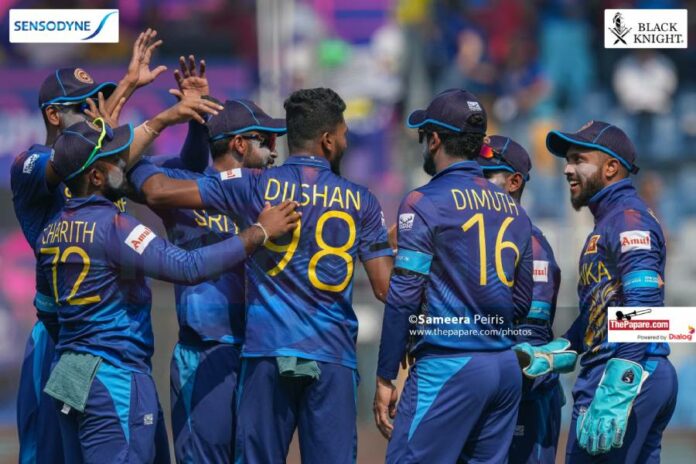Times where the cricket establishment was stable were rare in Sri Lanka. But despite those flaws, players left aside the setbacks, their own differences and performed beyond expectations bringing glory to the nation.
When Sri Lanka won the World Cup in 1996 no player barring Aravinda de Silva had turned professional. By 2014 when they won the World T-20, while there was professionalism in the game, a bitter pay dispute between the establishment and the players had threatened to derail Sri Lanka’s campaign. But to their credit, the players set aside those distractions and pulled off a sensational win.
People may say that those teams had some terrific match winners, and you can not compare those sides from the current lot. But the fact of the matter is that those players didn’t become icons all of a sudden. They started from scratch and went onto become legends of the game having fine-tuned their skills with relentless hard work.
Take the case of T.M. Dilshan. There was nothing that he could not do in cricket. Attacking opening batsman, solid middle order player, crafty off-spinner, handy wicketkeeper and of course brilliant fielder. When Dilshan broke into the senior side in 1999, there was nothing spectacular about his fielding.
Dilshan was dropped from the side in 2002 and missed out on the 2003 World Cup much to the surprise of many. But when he made a comeback to the side, he had raised his fielding standards by many folds. What did he do? After every training session, Dilshan spent an hour with Fielding Coach Trevor Penny working on his catching and throwing. By his own admission, in the early days, it took him close to one hour to score ten direct hits. But by six months he could complete ten direct hits in less than five minutes. Practice makes perfect.
You don’t see that kind of commitment in the current team. When training is optional no one would take the trouble to show up and give the Fielding Coach more work.
Then there is obviously Kumar Sangakkara. His wicketkeeping was average when he started, and his batting was nothing spectacular. But he turned out to be the nation’s most successful batsman and topped the chart as world’s number one ranked batsman for a record number of weeks competing with the likes of Brian Lara, Sachin Tendulkar, Ricky Ponting, Rahul Dravid and Jacques Kallis. For Sanga practice was worship. He did give up keeping in Test match cricket rather reluctantly but continued to set the benchmark in white ball cricket and his keeping records will stay for some time, now that Quinton de Kock has thrown in the towel and Mushfiqur Rahim is not the first-choice wicketkeeper in the other side of Bengal.
You desperately hope that players with the attitude and appetite of a Sanga or a Dilshan show up. You see plenty of them in the Under-19 and ‘A’ team circles but sadly when these players turn up at the senior side, they buy into the existing culture of the team which is not so jolly.
Barring a few seniors in the current side, not many can call themselves as role models. When you don’t have them, sometimes the management needs to be firm leaving no room for errors.
What is at stake is not only the pride of the nation. Much more is at stake. The board will struggle to pump in resources to keep the grass root levels healthy if the team continues to fail. The fact that Sri Lanka will not take part in the Champions Trophy means the board will miss out on a cool sum of 500,000 US$ as participation fee. Not to mention the other sponsorships, match fees and prize money for players.
There definitely needs to be an attitude switch in the team and let the humiliation at the World Cup be an eye opener for all and sundry.
Apart from the players, there need to be fresh thinking within the team management as well. Already some members of the support staff have stepped down and key areas like batting, spin bowling and fielding need to be filled with new individuals. The only area the team can be proud of is fast bowling and which is why if at all any person of the support staff has to remain that’s got to be Chris Silverwood.
Three Qualifying Round Tournaments in three years is simply not good enough. Not going through to the Champions Trophy is a bitter pill to swallow. Often the board is bearing the brunt of all the criticism of the poor standards the team is displaying. The players and the coaching staff need to take their share of the blame as well for the mess.













